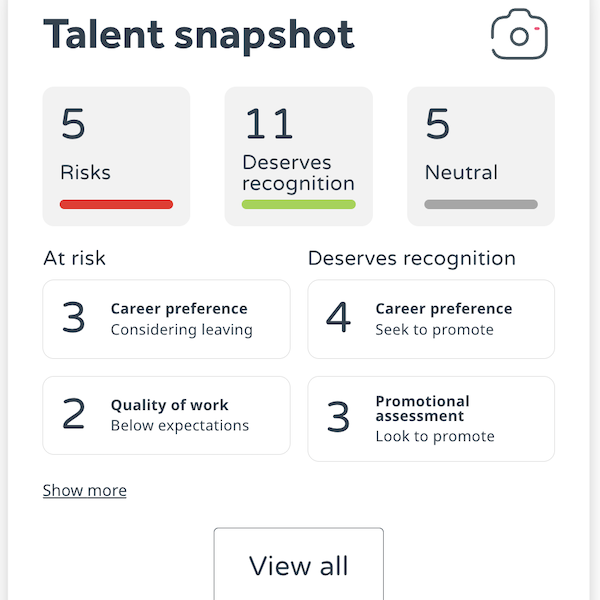Hiring the right people is an important aspect of building a successful business. The big question is how do you ensure the people you hire are right?
With company culture being recognised as an increasingly important employee engagement and productivity lever, it’s no wonder many businesses are keen to hire people who won’t upset the culture applecart.
On the face of it, culture-fit hiring seems like a sensible approach to recruitment, but is it really good for business or not? Many businesses are buying into culture-fit hiring, but an increasing number argue that it brings bias into the recruitment process.
In this blog, I’ll take an in-depth look at culture-fit hiring, what it means, the intention and the results in order to try to ascertain whether this approach to recruitment is actually good for business or not.
What is culture-fit hiring?
Just like people differ in their personalities and in their attitudes, beliefs and values, so do businesses. Business culture is a tricky concept to define, but it essentially means the beliefs, values and ‘the way we do things’ in a business.
Culture encompasses a lot of things from the company’s mission statement and visions to how employees, managers and directors treat each other, business practices, employee wellbeing, staff development and much more. In some way, it refers to the personality of the business.
Culture-fit hiring places importance on recruiting a person who has a personality to match the personality or culture of the business. For example, a loud, extrovert team who spend their evenings together at the pub probably wouldn’t be looking for a shy, demure teetotaller. A slightly extreme example, but you get the idea.
On a more academic level, organisational psychologist Adrian Furnham argues, (in his book The Psychology of Behaviour at Work), that:
“A fit is where there is congruence between the norms and values of the organization and those of the person.”
It makes sense to hire the candidate who most connects with the culture of the organisation. Aligning someone with the values, vision, working language, belief systems, staff habits, and acceptable behaviours of a business seems a reasonable way to build a cohesive workforce.
According to global recruitment company, Cubiks, culture fit is becoming an increasingly important factor when businesses consider prospective candidates. And it’s not only businesses looking at cultural fit, prospective employees do it too.
In an article on How to use group interviews to determine culture fit, published by Glassdoor, travel insurance comparison website, Squaremouth, is highlighted as one of many businesses who see culture fit as just as important as a candidate’s experience.
Megan Moncrief, Director of Sales and Marketing at Squaremouth, makes a strong argument for initially investing in culture fit:
“We believe that skills can be trained and improved upon, but attitude can’t be taught.”
But, is culture-fit hiring misguided?
While the arguments for culture-fit hiring appear pretty convincing, there is another side to the debate.
Simon Fanshawe, a respected writer, broadcaster, and equality and diversity consultant, argues that culture-fit hiring is only useful if it means bringing diversity into the business and managing differences well.
Fanshawe, an advocate of equality in the workplace, says that diverse teams have more to offer in fast-paced business contexts where new markets, new approaches, and the challenges of digitalisation require a variety of minds. Difference, Fanshawe argues, needs to be celebrated:
“All we’ve got as humans is our difference. So, the only way we ‘fit’ together is recognising that and loving it.”
Patty McCord, former chief talent officer at Netflix is also sceptical about hiring for cultural fit. In a recent article for the Harvard Business Review on How to Hire she argues that hiring for culture-fit is a misguided strategy which can contribute to a lack of diversity within a business.
McCord says, “…very often the people we enjoy hanging out with have backgrounds much like our own.” A workplace culture with people from the same backgrounds, with the same views doesn’t bring diversity.
In any case, the best person for the job may not appear to be the best cultural fit for a business. In McCord’s experience organisations can adapt to many people’s styles.
Another argument against culture-fit hiring is the fact that it immediately introduces bias into the hiring strategy. One employee review on Glassdoor accused a company they formerly worked for as using ‘cultural fit’ as a veil for huge biases. This doesn’t sit well in terms of equality and diversity.
What makes a team high functioning?
Fanshawe has written extensively on the diversity dividend and what factors contribute to the most motivated and highly functioning teams.
Google’s Aristotle project looked at the highest performing teams in the business. After two years of studying 180 teams, Google discovered the most important element leading to success were the ’norms’ set down with each other about how the team operated.
Five key characteristics of enhanced teams were outlined by Google’s People Analytics Manager, Julia Rozovsky, as:
- Dependability
- Structure and clarity
- Meaning
- Impact
- Psychological safety
A focus on culture in business is a good thing. In essence hiring people who understand what a business is all about, and will have no trouble settling in and contributing, isn’t a bad idea. Teams with people from similar backgrounds will undoubtedly get along.
The big question is, does culture-fit hiring lead to homogenous teams and is that good or bad for business? Creative thinking, problem solving and innovation rely on diversity. Without a strong emphasis on diversity, culture-fit hiring can backfire.
About WeThrive
Employee Engagement, Evolved
WeThrive is the agile employee engagement platform that uncovers how your people truly feel, enabling managers to create highly effective teams, increase employee retention and employee wellbeing and deliver better business results.
At organisation, team or individual level WeThive’s unique 4cs model leverages the latest psychological understanding to quickly and easily deliver insights, actions and learning content to help your managers become better managers, creating a high performance culture and improving business results. UK based, WeThrive has an average 91% employee engagement survey completion rate and to date has made over 5000 company-wide recommendations.


